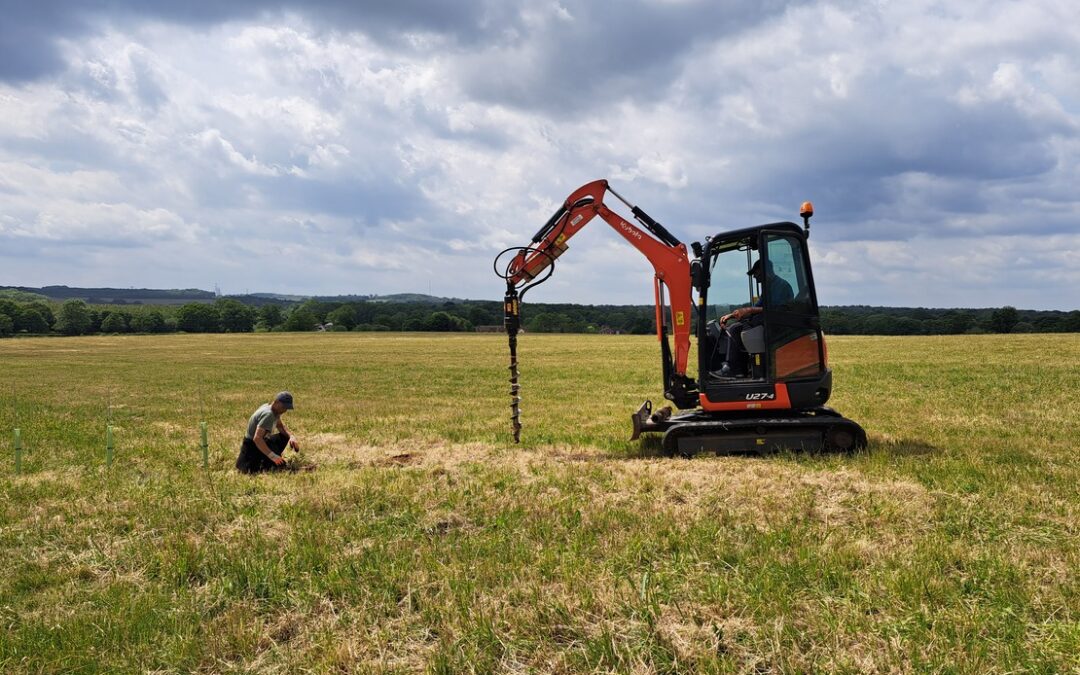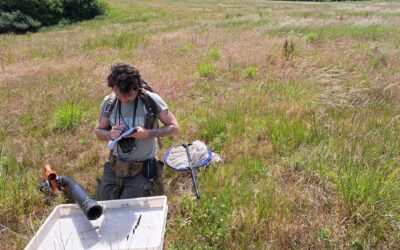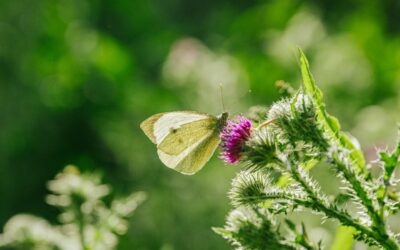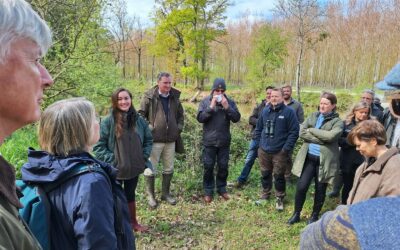This year we turned seven acres of Ewhurst Park into a vineyard planted with five varieties of grape. This means we’ll be producing our own delicious wine fairly soon, with bottles for sale hopefully as early as 2031.
I’ve always been interested in viniculture and, when I researched, I realised that Ewhurst Park is in an area where the soil structure is very close to that of the Champagne region, which is why some English sparkling wines are doing so well. I’m also aware that, due to climate change, the temperature will rise again, so the land will keep getting better for planting wines.
When I started visiting winegrowers as part of my research, I was impressed to find that vineyards are being planted organically, using biodynamic principles. This demonstrated for me yet again that we need to work closely with nature and view everything we’re doing from an eco-system perspective.
We took all of this new information on board and set about carefully designing how to plant our vines using biodynamic principles and how to manage them without synthetic chemicals, always staying true to our ethos that food production and nature restoration can thrive in tandem.
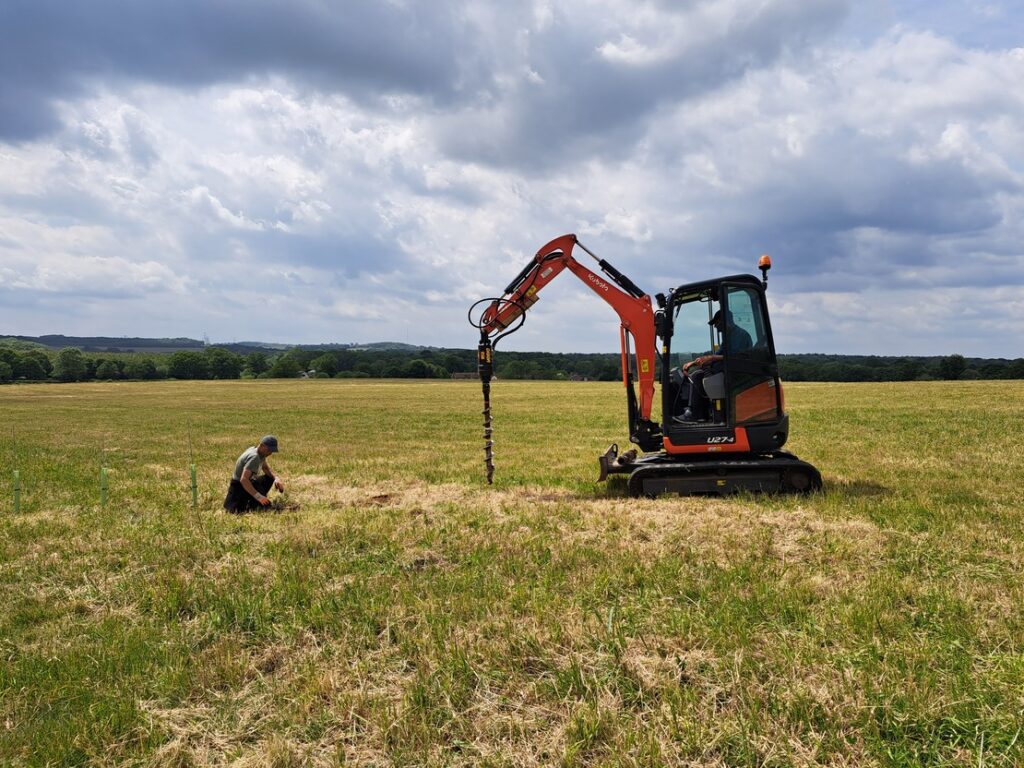
Drilling holes at the start of the vineyard planting process.
The five grape varieties we chose will produce sparkling wine (Chardonnay, Pinot Noir and Pinot Munier) and rosé (Savignac and Merlot Kanthus). We chose Savignac and Merlot Kanthus hybrid varieties because these are highly resistant to fungal disease. This is especially important when managing a vineyard organically, without artificial pesticides, fungicides or fertilisers.
The first main harvest is due in 2029, with Ewhurst Park wines hopefully being ready for sale two years after that.
I want to give huge thanks to @vinescapes for their help with our vineyard design and management so far. You can see them at work at Ewhurst Park in this Instagram post: https://www.instagram.com/p/DKes4VSIBN2/
The specific site for our vineyard was carefully chosen after undertaking various surveys to assess the land for climate, frost mapping and biodiversity suitability.
The vineyard will be organic, regenerative and holistic, managed with soil health, nature, climate mitigation and viticulture in mind.
Growing techniques will include minimal tillage, wildlife management, integrated tree planting between the vines, and a high trellis system so that livestock can graze on the ground between the vines.
Cheers!

